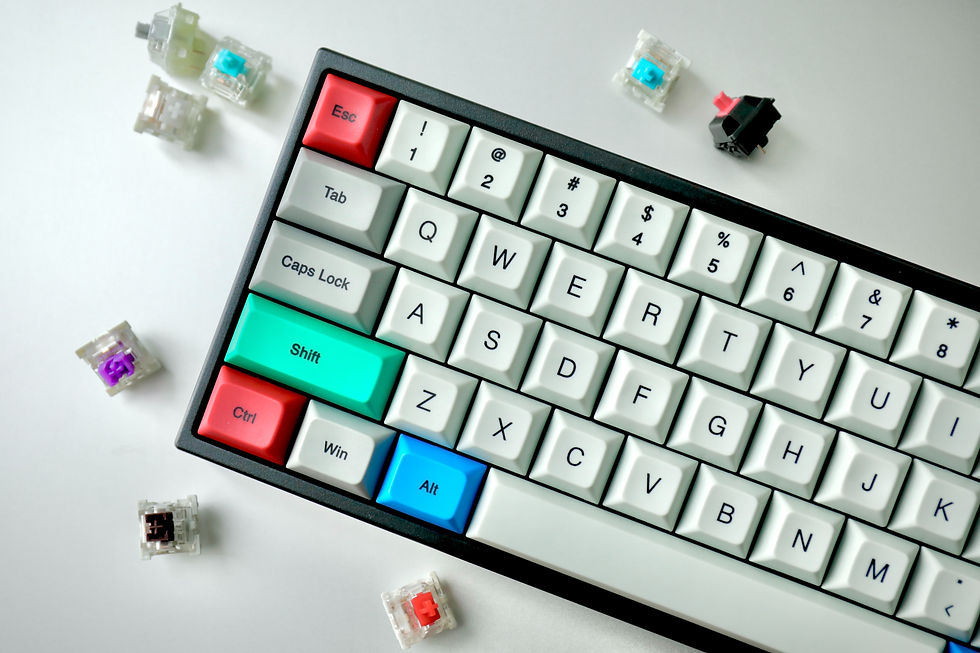Top 5 Best Astrophotography Cameras for Amateur Astronomers
- Admin
- May 1, 2023
- 3 min read

Astrophotography, the art of capturing celestial objects and phenomena, has become increasingly accessible for amateur astronomers thanks to advances in camera technology. In this article, we'll review the top 5 astrophotography cameras for amateur astronomers available on Amazon and answer some common questions about this fascinating hobby. Let's explore the world of astrophotography and help you find the perfect camera to capture the wonders of the night sky.
What is Astrophotography?
Astrophotography is a specialized type of photography that involves capturing images of celestial objects, such as stars, planets, and galaxies. It typically requires long exposure times, high sensitivity cameras, and specialized lenses or telescopes to capture the faint light emitted by these distant objects.
Top 5 Best Astrophotography Cameras on Amazon
1. Nikon D5600 DSLR Camera
The Nikon D5600 DSLR Camera features a 24.2-megapixel APS-C sensor, offering high-resolution images and excellent low-light performance. Its vari-angle touchscreen display provides easy navigation, making it a top choice for amateur astronomers seeking a versatile and user-friendly camera for astrophotography.
Pros:
24.2-megapixel APS-C sensor for high-resolution images
Excellent low-light performance
Vari-angle touchscreen display for easy navigation
Cons:
Lacks a dedicated astrophotography mode
2. Canon EOS Ra Mirrorless Astrophotography Camera
The Canon EOS Ra Mirrorless Astrophotography Camera is designed specifically for capturing celestial objects, featuring a 30.3-megapixel full-frame sensor and 4K video capability. While it is more expensive than some alternatives, its dedicated astrophotography features make it an excellent investment for serious amateur astronomers.
Pros:
Designed specifically for astrophotography
30.3-megapixel full-frame sensor
4K video capability
Cons:
Expensive compared to other options
3. Sony a7 III Mirrorless Camera
The Sony a7 III Mirrorless Camera boasts a 24.2-megapixel full-frame sensor and excellent low-light performance, making it a strong option for astrophotography. Its 4K video capability allows for stunning time-lapse recordings of celestial events, although it lacks a dedicated astrophotography mode.
Pros:
24.2-megapixel full-frame sensor
Excellent low-light performance
4K video capability
Cons:
Lacks a dedicated astrophotography mode
4. Nikon D7500 DSLR Camera
The Nikon D7500 DSLR Camera features a 20.9-megapixel APS-C sensor and an ISO range up to 51,200, ensuring excellent low-light performance. Its 4K video capability allows for stunning time-lapse recordings of celestial events. However, it is heavier than mirrorless options, which may be a consideration for those planning extended photography sessions.
Pros:
20.9-megapixel APS-C sensor
ISO range up to 51,200 for low-light performance
4K video capability
Cons:
Heavier than mirrorless options
5. Canon EOS 80D DSLR Camera
The Canon EOS 80D DSLR Camera offers a 24.2-megapixel APS-C sensor and a vari-angle touchscreen display, making it a versatile option for astrophotography. Its built-in Wi-Fi and NFC capabilities allow for easy image sharing, but it lacks 4K video capability, which may be a drawback for those looking to capture high-resolution time-lapses.
Pros:
24.2-megapixel APS-C sensor
Vari-angle touchscreen display
Built-in Wi-Fi and NFC for easy image sharing
Cons:
Lacks 4K video capability
What should you look out for when selecting the best astrophotography camera?
When choosing the best astrophotography camera, consider the following factors:
Sensor size and resolution: Larger sensors and higher resolutions can capture more detail in celestial objects.
Low-light performance: Astrophotography often requires long exposures in low-light conditions, so cameras with excellent low-light performance are essential.
Video capabilities: If you plan to capture time-lapses of celestial events, consider a camera with 4K video capabilities.
Compatibility with telescopes and lenses: Ensure the camera is compatible with any telescopes or lenses you plan to use for astrophotography.
Price: Determine your budget and choose a camera that offers the best value for your needs.
How do astrophotography cameras differ from regular cameras?
Astrophotography cameras may have features specifically designed for capturing celestial objects, such as modified sensors that are more sensitive to specific wavelengths of light emitted by stars and galaxies. They may also include dedicated astrophotography modes or settings that optimize the camera's performance for capturing images of the night sky.
The Bottom Line
Astrophotography is an exciting and rewarding hobby for amateur astronomers, allowing you to capture stunning images of celestial objects and phenomena. Our top 5 picks for the best astrophotography cameras on Amazon cater to a variety of budgets and preferences, ensuring you'll find the perfect camera to suit your needs. Consider factors such as sensor size, low-light performance, video capabilities, compatibility with telescopes and lenses, and price when selecting the best astrophotography camera for your needs. With the right camera in hand, you'll be ready to explore the wonders of the night sky and capture breathtaking images of the cosmos.
We believe in transparency and honesty when it comes to recommending products. Some of the links on our website are affiliate links, which means we may earn a commission if you purchase a product through our links. This doesn't cost you anything extra, and it helps us to continue bringing you in-depth reviews and top 5 lists of the best products. We only recommend products that we've researched and believe will provide value to our readers. Thank you for your support!





Comments